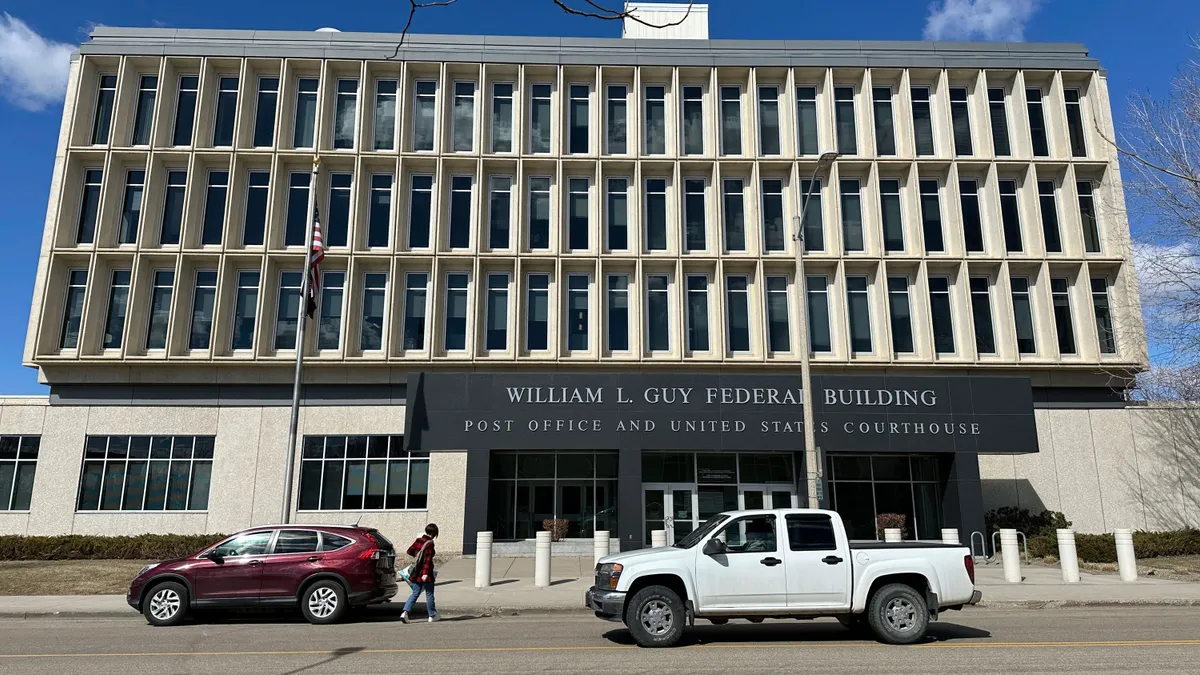A North Dakota district court judge on Monday granted a Catholic organization’s request for a preliminary injunction blocking U.S. Equal Employment Opportunity Commission enforcement of the Pregnant Workers Fairness Act final rule and harassment guidance associated with Title VII of the Civil Rights Act (Catholic Benefits Association v. EEOC).
Specifically, with respect to the PWFA, the agency may not require the Diocese of Bismarck and the Catholic Benefits Association to accommodate, speak favorably of or refrain from speaking against abortion or infertility treatments when such actions violate their faith, Judge Daniel Traynor ordered.
Regarding the harassment guidance, EEOC cannot require the Diocese and CBA to speak favorably about or refrain from speaking against abortion, fertility treatments or gender transition when such actions are contrary to their faith; to “use pronouns inconsistent with a person’s biological sex”; or to “allow persons to use private spaces reserved for the opposite sex.”
The Diocese of Bismarck is a member of the CBA, a nonprofit membership organization which advocates on behalf of Catholic employers. The association includes 1,400 members, serves 87 dioceses and covers 162,000 employees in its health plans, according to its website.
The CBA and Diocese of Bismarck jointly filed the complaint July 24, citing nine violations of the Religious Freedom Restoration Act, as well as violations of the Administrative Procedure Act, the First Amendment and Title VII. Traynor found sufficient grounds to issue the injunction under the RFRA, however, setting aside the other allegations.
Under the PWFA or Title VII guidance, Traynor said, “the CBA’s conduct will be chilled by the choice between possible violation of federal law and free expression of sincerely held religious beliefs.”
Religious rights gain ground — for both workers and employers
The case is the latest example of religious rights enjoying renewed strength in the courts, kicked off in part by the U.S. Supreme Court’s June 2023 Groff v. DeJoy decision, which required that employers show a “substantial” burden to prove undue hardship when rejecting a religious accommodation request — rather than the previous “more than a de minimis cost” standard.
Workers have successfully appealed several religious accommodation cases following the Groff decision. In July, for example, the 7th U.S. Circuit Court of Appeals allowed two former employees of a healthcare organization to proceed with their claim they were unlawfully denied a religious exemption from receiving the COVID-19 vaccine, even though their requests also included — or even “turn[ed] on” — secular considerations.
In March 2022, Justice Samuel Alito hinted at the Supreme Court’s interest in more clearly defining religious rights when he authored the decision to refuse to take up the case of a Christian employer that rejected a bisexual applicant.
“The day may soon come when we must decide whether the autonomy guaranteed by the First Amendment protects religious organizations’ freedom to hire co-religionists without state or judicial interference,” Alito wrote at the time.
In his introduction to CBA v. EEOC, Traynor railed against what he described as “repeated illegal and unconstitutional administrative actions” in violation of religious freedom.
“The current suit falls into a long line of cases that should be unnecessary in a country that was built on the concept of freedom of religion,” he wrote. “One would think after all this litigation, the government would respect the boundaries of religious freedom. Instead, it seems the goal may be to find new ways to infringe on religious believers’ fundamental rights to the exercise of their religions.”














